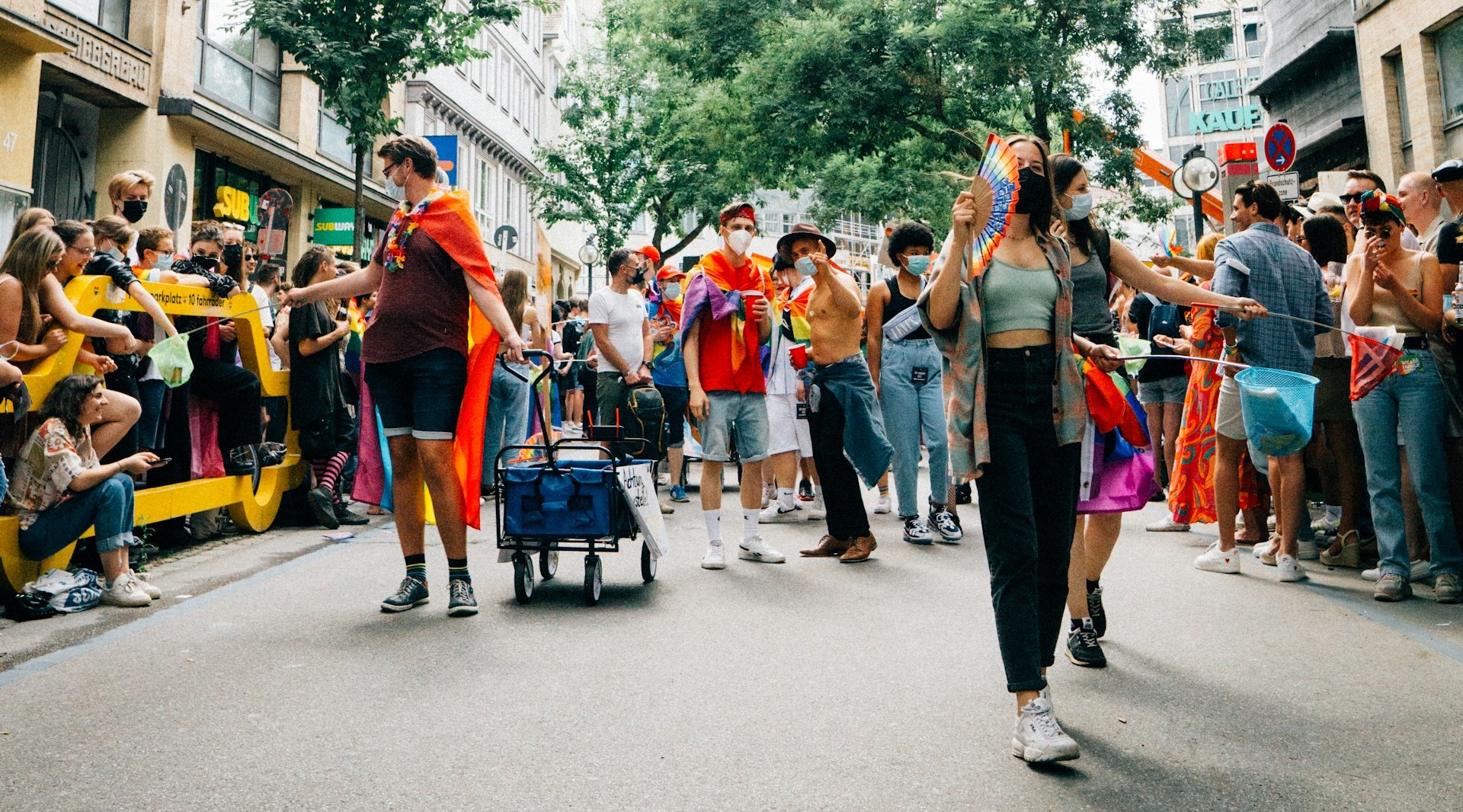Together against discrimination: the path to an inclusive society

In our diverse world, the urgency for inclusivity and equal treatment is paramount. As we commemorate the 10th anniversary of Zero Discrimination Day on March 1st, this occasion signifies a global commitment to eradicating all forms of discrimination. Initiated by the United Nations and rooted in the UNAIDS campaign since 2014, the day serves as a call to action against persistent discrimination related to race, gender, sexual orientation, age, disability, and health status. It spotlights the adverse effects of discrimination, urging collective efforts to foster an authentic, discrimination-free world and promote a more inclusive society.
Against the backdrop of the ongoing Russian invasion of Ukraine, where the principles of equality and respect face severe challenges, Zero Discrimination Day gains added significance. Since its inception in 2022, the conflict has resulted in widespread displacement, loss of lives, and an unprecedented refugee crisis, with the global count of recorded refugees from Ukraine reaching almost 6.5 million as of February 2024. Discrimination, in various forms, exacerbates the suffering of those affected by the conflict. Zero Discrimination Day calls for heightened awareness and action, emphasizing the need to stand against discrimination not only globally but also in the face of specific challenges such as the Russia-Ukraine war.
Exploring the multifaceted dimensions of discrimination underscores the critical relevance of this day in fostering a future where every individual, irrespective of their circumstances, is granted equal rights and dignity.
The journey of Ukrainian refugees escaping war-ravaged zones has brought to light the poignant struggles faced by LGBTQ+ individuals seeking refuge in Eastern Europe, particularly in Poland. Within the first two months of the invasion, over five million Ukrainians sought temporary protection in Europe, with a significant number settling in neighboring countries known for their low tolerance toward LGBTQ+ rights. Poland, a common destination for Ukrainian refugees, has been ranked last in the European Union for recognizing LGBTQ+ rights, according to the International Lesbian, Gay, Bisexual, Trans and Intersex Association (ILGA).
The experiences shared by queer Ukrainian refugees, like Oksana in Chatham House’s publication, underscore the harsh reality of seeking asylum based on sexual orientation. The discriminatory atmosphere goes beyond societal attitudes, as Poland, Romania, and Bulgaria explicitly omit same-sex couples, even if married, from the definition of family members in their temporary protection policies. This exclusion creates a vulnerable situation for LGBTQ+ couples, denying them access to social benefits and services as a family unit.
International cooperation and support are essential to addressing the specific needs of LGBTQ+ refugees. The United Nations High Commissioner for Refugees (UNHCR) and ILGA emphasize the importance of inclusivity in the refugee response, calling for cooperation with the LGBTQ+ community, local NGOs, and refugees themselves. However, as external help begins to fade with the prolonged war, the challenges persist, underscoring the need for sustained international attention and collaboration.
On Zero Discrimination Day in 2024, it is crucial to acknowledge the intersectionality of discrimination faced by LGBTQ+ Ukrainian refugees. Their journey is marked not only by the horrors of war but also by the additional layers of prejudice based on their sexual orientation. Recognizing their struggles becomes a clarion call for inclusive policies, increased awareness, and sustained international support to ensure that the principles of equality and non-discrimination are upheld for all, irrespective of nationality or sexual orientation.
The discrimination faced by non-white Ukrainian refugees not only reveals a disconcerting reality on the ground but also raises profound legal concerns under international refugee and human rights law. Refugees’ accounts highlight instances of disparate treatment linked to both skin color and nationality.
Instances of blatant discrimination at border crossings are exemplified by the experiences of individuals such as Jessica Orakpo, a Nigerian medical student, who was told that guards were prioritizing Ukrainians and instructed that “if you are black, you should walk.” Chineye Mbagwu, a Nigerian doctor, recounted witnessing non-white refugees being assaulted at the border. Such stories illuminate the profound challenges faced by non-white refugees, stranded while their white counterparts receive refuge.
These instances underscore the pressing need to address legal concerns under international refugee and human rights law, emphasizing the urgency of advocating for equality and justice on Zero Discrimination Day 2024.
In my vision of a world without discrimination, city streets are designed with ramps and elevators for easy accessibility. Public services, transportation, and housing prioritize universal design, accommodating individuals of all abilities. The media showcases a broad range of stories, giving voice to diverse experiences and fostering understanding among communities. Hate crimes and discrimination are distant memories, replaced by a society where leaders actively address the needs and aspirations of everyone.
In workplaces, diversity isn’t just a buzzword; it’s a reality that fosters innovation. Companies actively seek varied perspectives, creating an environment where creativity flourishes. Neighborhoods embrace a mix of cultures and backgrounds, forming communities where mutual respect and understanding are the norm. Relationships and friendships thrive without societal judgments, allowing connections to grow beyond surface differences.
In this world, the value of each person’s journey is recognized, contributing to a shared sense of well-being and prosperity. It’s a reality where unique stories unfold naturally, woven into the fabric of a truly inclusive global society.
Thus, in commemorating the 10th anniversary of Zero Discrimination Day in 2024, we are reminded of the urgent need for collective action to eliminate all forms of discrimination. The poignant stories of LGBTQ+ and non-white Ukrainian refugees underscore the intersectionality of discrimination and the imperative for inclusive policies and sustained international support. As we envision a world without discrimination, let us not only celebrate the beauty of diversity but commit ourselves to dismantling the barriers that divide us. Together, we can build a future where every individual, irrespective of their circumstances, enjoys equal rights and dignity, contributing to a truly inclusive and compassionate global society.
Author: Isabella Collins, Brown University, United States of America
Photo by Christian Lue on Unsplash
Center for Civil Liberties operates with the support of the European Union.

